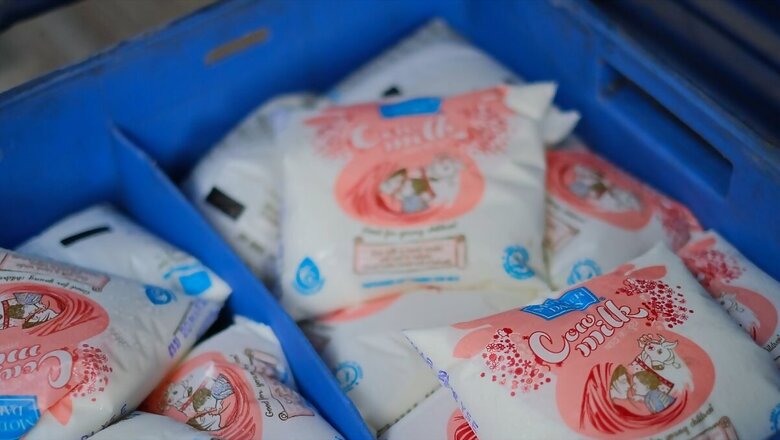
views
India, the largest milk producer in the world, may import dairy products after a gap of nearly 12 years due to stagnant production coupled with growth in demand, according to a senior official of the department of food and animal husbandry.
“Production is a bit stagnant. Normally production has been growing at 6 per cent per year. This year, it has been either stagnant or grown at around 1-2 per cent. The data that we have from the cooperative sector shows a growth of 2 per cent. But, I am still saying since we don’t take into account the entire private sector, we assume that it is kind of stagnant. Another fact is demand this year has grown by 8-10 per cent. A lot of it is demand that was suppressed due to Covid-19,” Rajesh Singh, secretary, animal husbandry and dairy, told reporters on April 5.
According to Singh, milk supply is not constrained but there may be some constraints in fats, ghee and butter. He further explained that since the flush season in the southern states is now starting, the government will take a call on whether it needs any intervention at a later stage. Singh stressed that the government hopes to keep things under control but will intervene, if required.
On Saturday, Singh issued a statement that read: “In the past week, there have been some misleading news reports about the possibility of India importing dairy products, which in turn has lead to apprehension among the farmers and other stakeholders. On behalf of the department, I would like to make it clear that the government has not taken any decision regarding the import of dairy products and decisions are and will be taken taken prioritizing the interests of the farmers.”
Reports of India’s openness to import milk products like ghee and butter evoked a sharp reaction from former agriculture minister and NCP chief Sharad Pawar who said: “Any decision by the central government in this regard will be totally unacceptable because the import of these products will directly affect the income of the domestic milk producers. The dairy farmers have recently come out of an unprecedented Covid-19 crisis and such decision will severely impede their revival process.”
The ministry of fisheries, animal husbandry and dairying issued a statement addressing the concerns of Pawar. “In case the situation warrants, the import may be done to ease out the situation for the dairy cooperatives to meet the summer demands. However, in that case also, it will be ensured that it is routed only through NDDB and the needy unions may be given stocks at the market price after proper assessment. This will ensure that our market is not distorted and the interest of our dairy farmer is protected, which is paramount and central to any decision taken by the government,” it said.
There are many factors which have resulted in this mismatch between demand and supply — the Covid-19 pandemic which saw demand crashing coupled with neglect of livestock because of resource constraints; the shortage in fodder with the cropped area remaining stagnant at around 4 per cent for decades resulting in fodder inflation; the onset of the lumpy skin disease which saw the death of 1,89,000 cattle, and the rise in consumer demand post the pandemic years.
In a year heading into the crucial general elections in 2024, it is a challenge for the government to keep food inflation at manageable levels and, at the same time, work towards doubling farmers’ income of which dairy and livestock is an important factor.
Food commodities command a weightage of 46 per cent in the Consumer Price Index of which milk and dairy products have the largest weightage at 6.61 per cent. Therefore, a price increase of even 1 per cent in dairy has a disproportionate impact on the CPI.
This could be one of the factors weighing heavily on the government’s mind and could explain the ‘consumer bias’, says Shweta Saini, agricultural policy economist. “In a year when we are heading into elections, food inflation would be a critical determining factor and therefore, the government will do anything to ensure that the food prices don’t rise. If that means policies will be more pro-consumer than pro-farmer, then that will play out. It is already playing out in the cases of pulses and mustard to some extent so dairy products are no exception.”
On the loss of opportunity for farmers, she says: “Clearly, milk farmers have suffered in the last two years because of rising prices and loss of demand due to Covid-19 and imports. If imports happen, it does diffuse any lucrative opportunity that farmers may have had but we do hope that the procuring industry increases procurement target from non-traditional states like Bihar, UP, and Odisha. The procurement of milk in the formal sector is only 21-25 per cent of the total milk that is produced in the country.”
The availability of milk and stock inventories of skimmed milk products is not an issue currently. “There is no availability issue. Price inflation is on the same lines as food inflation. Let me remind you that this is a sector which is surviving without any subsidy by the government and we want to keep it that way,” said the animal husbandry and dairy secretary. He also pointed out that international prices have hardened in recent months and imports may not be necessarily beneficial.
Terming it the ‘last resort’, for now, it is wait and watch for the government as it walks the tight rope balancing the interests of farmers and consumers.
Read all the Latest India News here











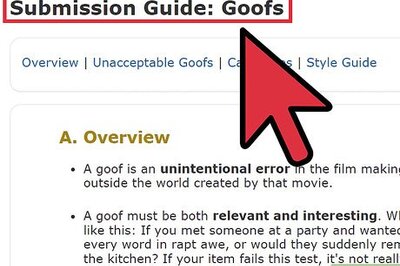

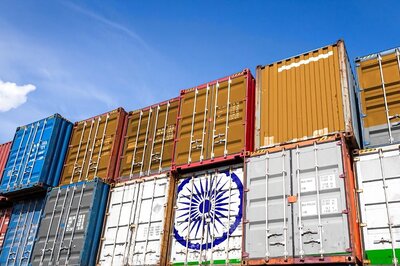




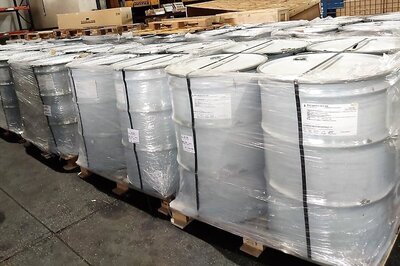
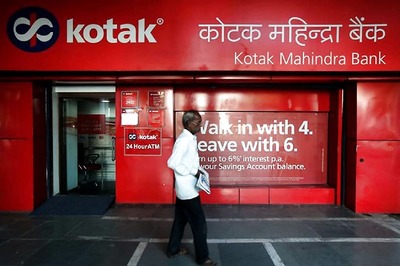
Comments
0 comment